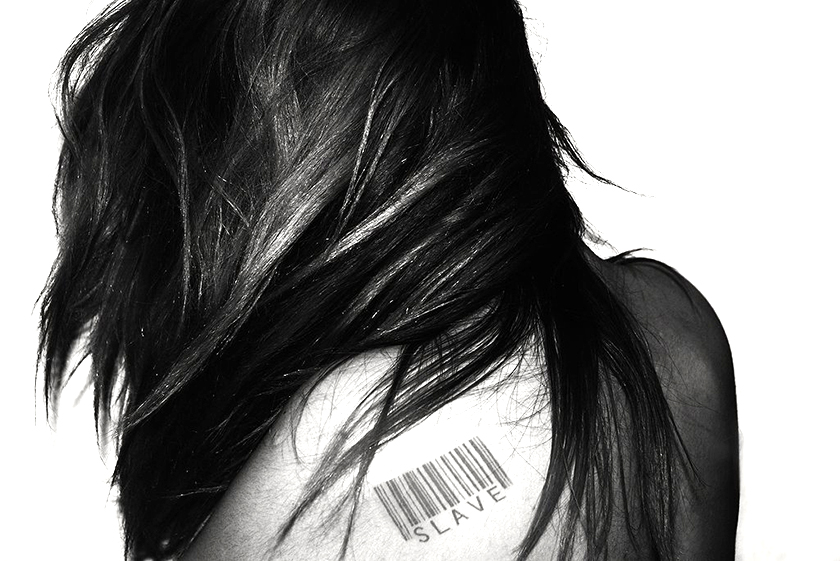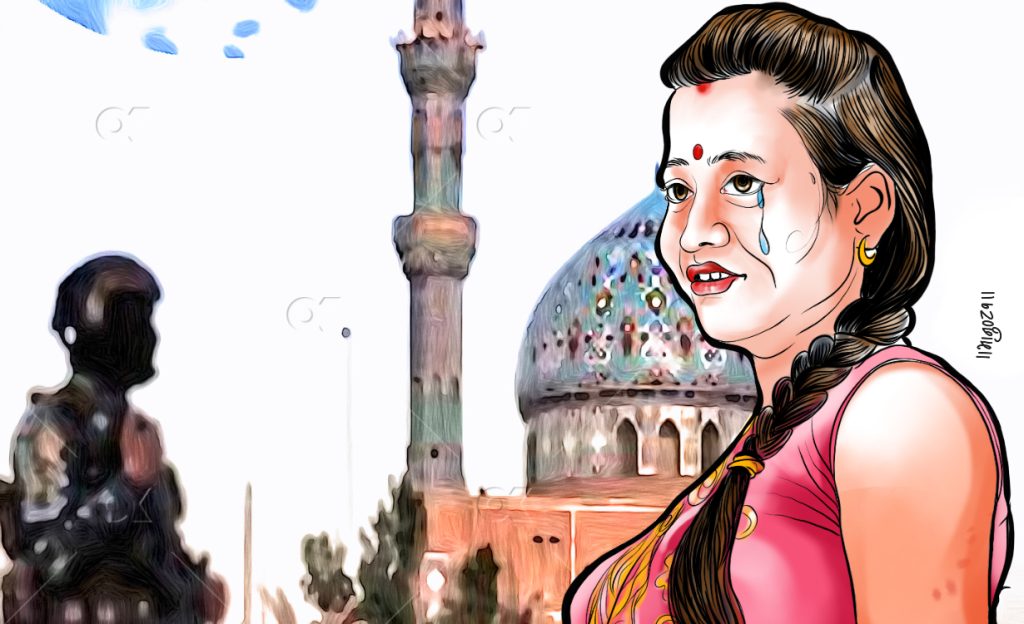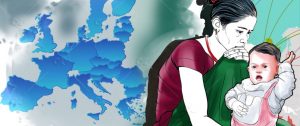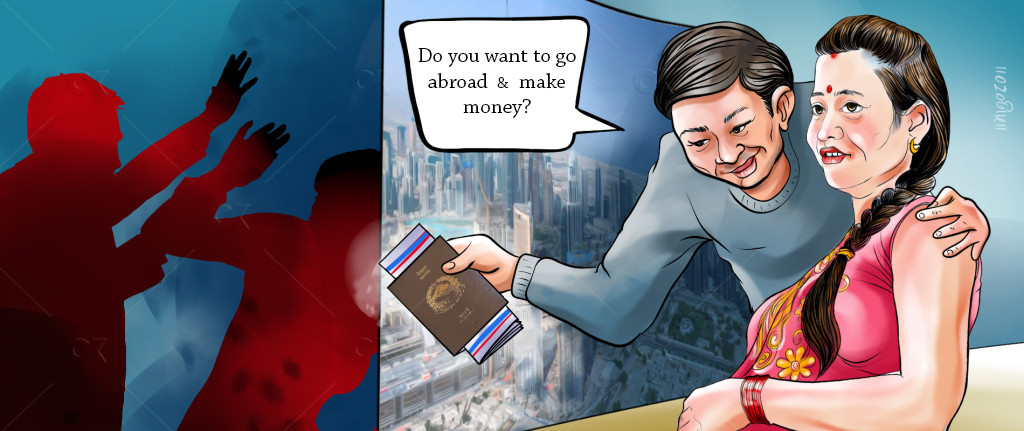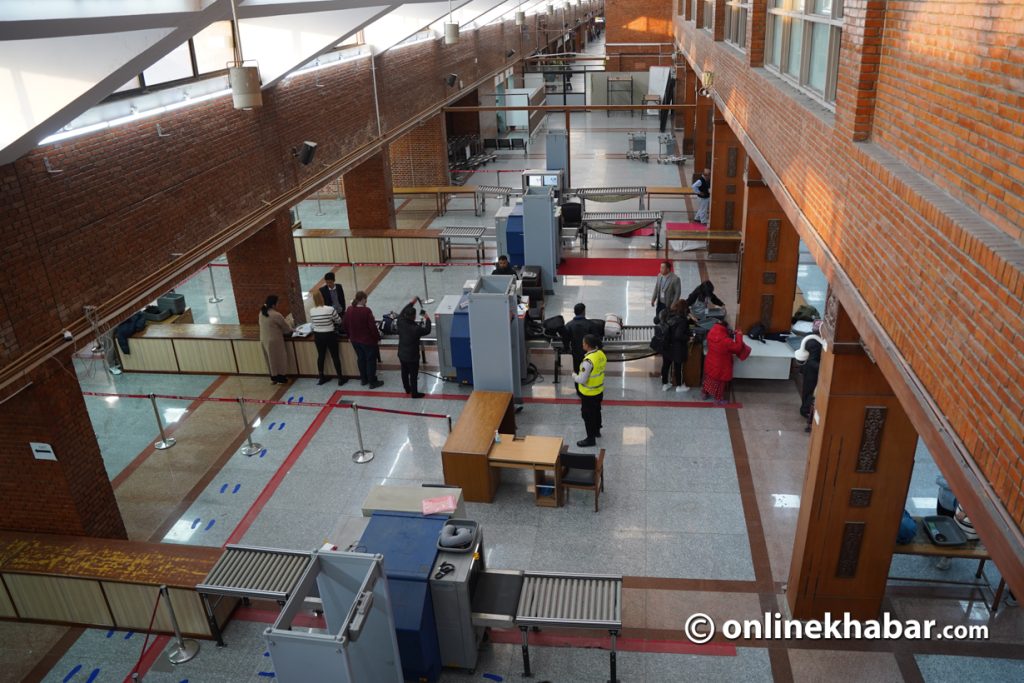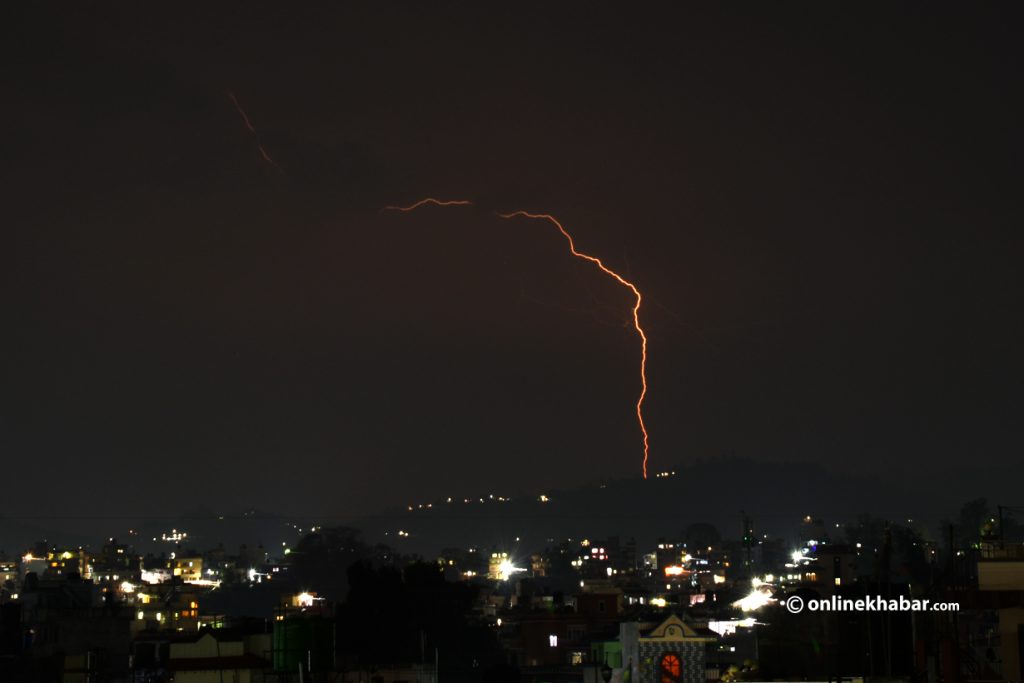Until March 2020, Kalpana (name changed) was working as a salesgirl at a private company in Lalitpur. However, following the announcement of the lockdown to control the Covid-19 spread, the employer fired her.
She became unemployed.
Five days into the lockdown, she returned to her village but came back to Kathmandu after eight months, but could not land a job. In the meantime, she met her former colleague who said she was going to India to work–with her aunt–that would give her a handsome salary.
After talking to her friend’s aunt, she got convinced to go there too.
The day after reaching Delhi, the aunt took them to a clothing store, left them there and fled. The next day, the shop owner forced them into sex work, and they realised they were sold. They informed the relatives through Messenger, and they were rescued and brought to Nepal 24 days later. They have filed an FIR against the woman, and further investigation is underway.
Kalpana is just one example. The number of women, adolescents and children being trafficked has sharply risen post the Covid-19 pandemic, inform organisations working against trafficking of women and children.
Economic loss leading to trafficking
The Covid-19 outbreak and subsequent lockdown created chaos in all areas. Many businesses shut down forcing people to lose their jobs. And, its direct effect was seen on the daily lives of the working class.
Stakeholders say their research has shown that the number of crimes such as family quarrels, sexual violence and domestic violence as well as human trafficking has increased as a result of low or no daily income.
Trends show the crimes like human trafficking increase during natural disasters and epidemics that disrupt people’s lives. According to Maiti Nepal’s Programme Manager Ram Sharan Poudel, human traffickers and brokers automatically become active as it is easy to tempt the vulnerable groups in such situations and traffick them.
Charimaya Tamang, the founder chairperson of Shakti Samuha, says unemployment created by the epidemic has increased the trafficking of women and adolescents in and outside the country. She estimates the number could still increase if the pandemic’s influence persists.
The Alliance Against Trafficking in Women and Children in Nepal (AATWIN), a network of 41 organisations working against the trafficking of women and children, says it has some statistics, but they are incomplete. Yeshoda Banjade, a focal person at the National Human Rights Commission’s human trafficking wing, also says the statistics are still being worked out.
Benu Maya Gurung, the executive director of AATWIN, says that the problem of human trafficking after Covid-19 is spreading like wildfire. She says that this crime will not be controlled unless all government and non-government bodies unite. “Trafficking is on the rise, both in and outside the country,” she says, adding, “People were found misusing ambulances, food and water delivery vehicles for domestic human trafficking.”
The increasing threat
Babita of Morang (name changed) was a waiter in a restaurant in Kathmandu when she became unemployed in the lockdown. While she was struggling with the extended lockdown, a neighbour told her that they needed a delivery girl for his brother’s online business in Pokhara. Online businesses were flourishing during the lockdown, so, even though her salary was not high, Babita agreed to go to Pokhara. She hired a food delivery vehicle and reached Pokhara.
Babita, who had slept after drinking water, woke up in a strange room. When a man entered the room and forced himself on her, she realised that she had been sold. Only after three months, when police in the coordination of an organisation raided the place, she was rescued. She is in a rehabilitation centre in Kathmandu today.
According to organisations working in the field, women and adolescents have been trafficked to various parts of Nepal and to India and Sri Lanka for employment. In the three months since the lockdown, Shakti Samuha had already rescued 21 individuals.
Charimaya Tamang says the figure is incomplete as the number of those rescued has been increasing thereafter too. She states her organisation is still working for the prevention of human trafficking and the rescue of the survivors.
Biswas Nepal, an organisation working in favour of women working in the entertainment and hospitality sector, has rescued 13 people who were trafficked, eight in Nepal and five outside the country. The organisation attests that all of them were sold following a financial temptation.
Rasana Dhakal, the information officer of the organisation, says “Those who worked in the entertainment and hospitality sector became unemployed during and post the lockdown. Because of this, the risk of being sold, as sex workers, following the temptation of financial security has suddenly increased.”
Police statistics do not support the claim
While the organisations working against human trafficking say the number of people being sold after the Covid-19 pandemic and the lockdown has increased tremendously, the data of the police show that the situation is normal. As of mid-January, only 33 cases of human trafficking have been registered in the past six months.
SSP Durga Singh, chief of the Anti-Human Trafficking Bureau of Nepal Police, claims that the number of people being trafficked for foreign employment has not increased.
But, AATWIN’s Gurung argues that the number may appear less in the police statistics because of a lack of reporting. “On the other hand, the police framework in these issues is not women-friendly,” she adds.
Shakti Samuha’s Tamang also seconds the fact, adding there is no practice of filing a complaint as people fear the society will know when they seek legal aid. “Criminals target vulnerable individuals and communities,” she says, “Such victims cannot reach the police or seek help due to the fear of the perpetrators.”



